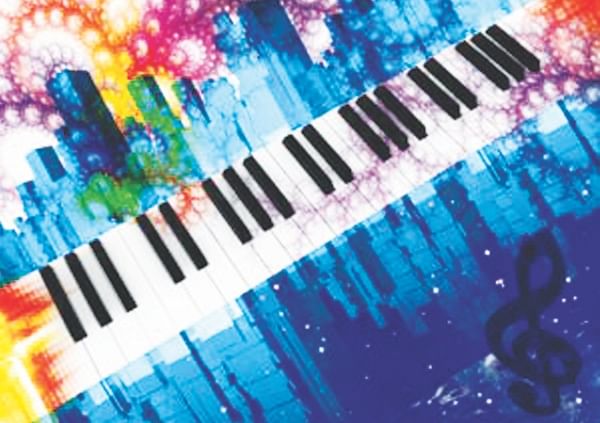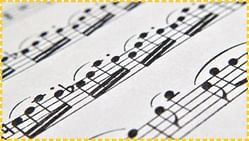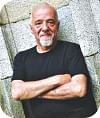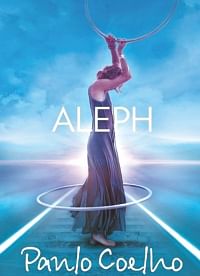
In search of the right tune
By Ibrahim
If you Google the term 'new year resolutions' one of the first things that will come up is 'learning the guitar/piano/other musical instruments'. Everyone loves music; especially the parts where guitarists are pounding out one solo after another while adulating fans throw themselves at their feet. Yes, that's the good life. But what you so blissfully ignore is the decades of hard work said musicians put in to reach that level. Hence, wishful resolutions like that usually tend to fall flat on their faces. But being the optimists that we are, we won't stop making such grand promises to ourselves and this week we give you the lowdown on the music scene here in Dhaka so that you can finally come good on your resolutions.
Bangla Classical Music: Classical music in our country, while not really growing in stature, has still managed to hold its own in the music scene and the hearts of millions of music lovers. And rightly so. From the outside looking in, our own classical music might seem overwhelming and starting from scratch might seem like a daunting prospect. So it's crucial to get off to a good start and the best place for this is undoubtedly Chhayanaut. They offer two year courses for adults in both singing and classical instruments for starters and have the best faculty on offer. Bulbul Academy of Fine Arts (BAFA) also offers courses on Rabindra and Nazrul geeti along with Folk music. Fees there are from Tk. 700 onwards for western and Indian courses. Chhayanaut school is located in Dhanmondi while there are several branches of BAFA all around Dhaka.
 Western Music: Now this is a more mainstream avenue of choice with many people opting to learn the guitar or the piano to start off. We suggest that you do it right and learn classical Western Music which includes music theory, staff notations and the like. There are many places all around Dhaka that cater to this but the most complete and diverse is the Dhaka International Music School in Taltola. Here they teach everything from guitar to violins to the trombone. Every type of western musical instrument is covered and they even have courses on contemporary genres like blues, jazz and rock. Other than DIMS, BAFA also offers courses on Spanish and Hawaiian guitars and the violin. Alliance Francaise also offers courses (Tk.5000 for guitar and Tk. 10000 for violin and cello) on Western Music so there isn't exactly a dearth of choices.
Western Music: Now this is a more mainstream avenue of choice with many people opting to learn the guitar or the piano to start off. We suggest that you do it right and learn classical Western Music which includes music theory, staff notations and the like. There are many places all around Dhaka that cater to this but the most complete and diverse is the Dhaka International Music School in Taltola. Here they teach everything from guitar to violins to the trombone. Every type of western musical instrument is covered and they even have courses on contemporary genres like blues, jazz and rock. Other than DIMS, BAFA also offers courses on Spanish and Hawaiian guitars and the violin. Alliance Francaise also offers courses (Tk.5000 for guitar and Tk. 10000 for violin and cello) on Western Music so there isn't exactly a dearth of choices.
Electronic Music: This is the one genre of music that is yet to fully take off in our country. But that's not to say that there aren't opportunities available for people interested in this. Again, BAFA does offer an introductory 1 year course on Electronic Music (for about Tk. 5000) and Goethe-Institut has been trying to develop the scene in recent times in collaboration with the Border Movement project. But more than that, this genre is more about experimenting and creating on your own and the 'Dhaka Electronica Scene' is one such DIY group. You can post your music in their group on Facebook if you're an enthusiast.
When starting out on music, the most important decision for you to make is what to pick. This should be straightforward for anyone who already has their hearts set on a particular genre or instrument but for others, it's important to take some time and listen to different types of music, pick on whatever appeals to you the most and then carry on from there. Now that you're armed with just a little bit of advice, we hope the coming year is a more cultured and musical one for you guys. Remember to stay on those resolutions.
BOOK REVIEW
 Aleph
Aleph
Author: Paulo Coelho
By Rannia Shehrish
'ALEPH' takes the readers on a journey spanning the 9288km of the Trans-Siberian railway and guides them on a trip through space and time. The story is about Paulo, a renowned writer, who embarks on this journey in search of his spiritual peace.
The story starts with Paulo confessing to his mentor, J, his disappointments with life and the Tradition, which he learned for years. On his advice, Paulo starts travelling through the continents of Africa, Europe and Asia, signing books, meeting readers and slowly conquering his kingdom.
 Filled with euphoria, he commits to a train-ride through Russia. He meets Hilal, a beautiful young woman and violin virtuoso, during his sojourn in Moscow. She claims that they were destined to meet and that she had the answers to all of Paulo's questions. Soon he realises that Hilal was the key to his spiritual expedition.
Filled with euphoria, he commits to a train-ride through Russia. He meets Hilal, a beautiful young woman and violin virtuoso, during his sojourn in Moscow. She claims that they were destined to meet and that she had the answers to all of Paulo's questions. Soon he realises that Hilal was the key to his spiritual expedition.
Despite the constant disapprovals of his editor and publisher, he lets Hilal tag along. He discovers that they were entangled in a spiritual web of love 500 years back, when they entered the Aleph, a parallel dimension where there is no past or future but all is present. Over the course of the journey, the story of their past unravels; he unlocks the secrets with the help of Hilal, and discovers that he betrayed her in their past lives.
The tension increases near the end where the two protagonists find themselves in love with each other in their current lives. But their romantic desires need to be broken in order to carry on with their separate lives.
Throughout the story, Paulo talks about spiritual concepts including incarnations. A person will somehow relive the incidents that happened in his past lives, till nirvana is reached.
Aleph is a story of love, forgiveness and spiritual enlightenment. It is the most personal book of his till date. If you haven't read Paulo Coelho's books before 'The Alchemist; would be a good start. His books speak to those who take life as the train and not the station. These tell the stories of Paulo himself, of the characters and of us.
